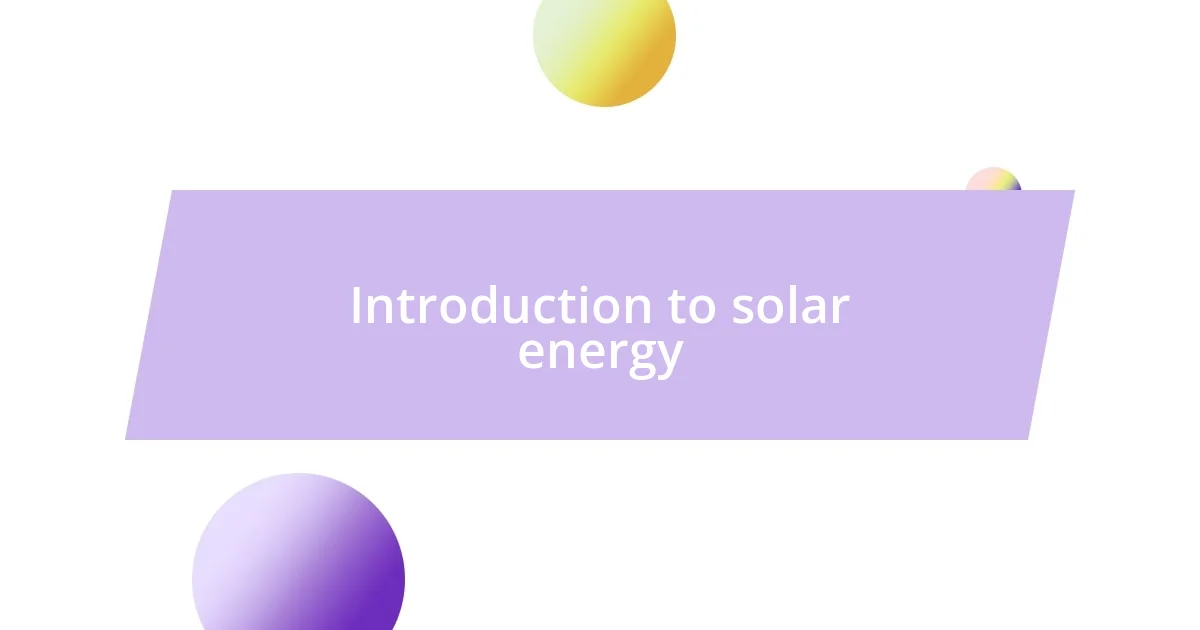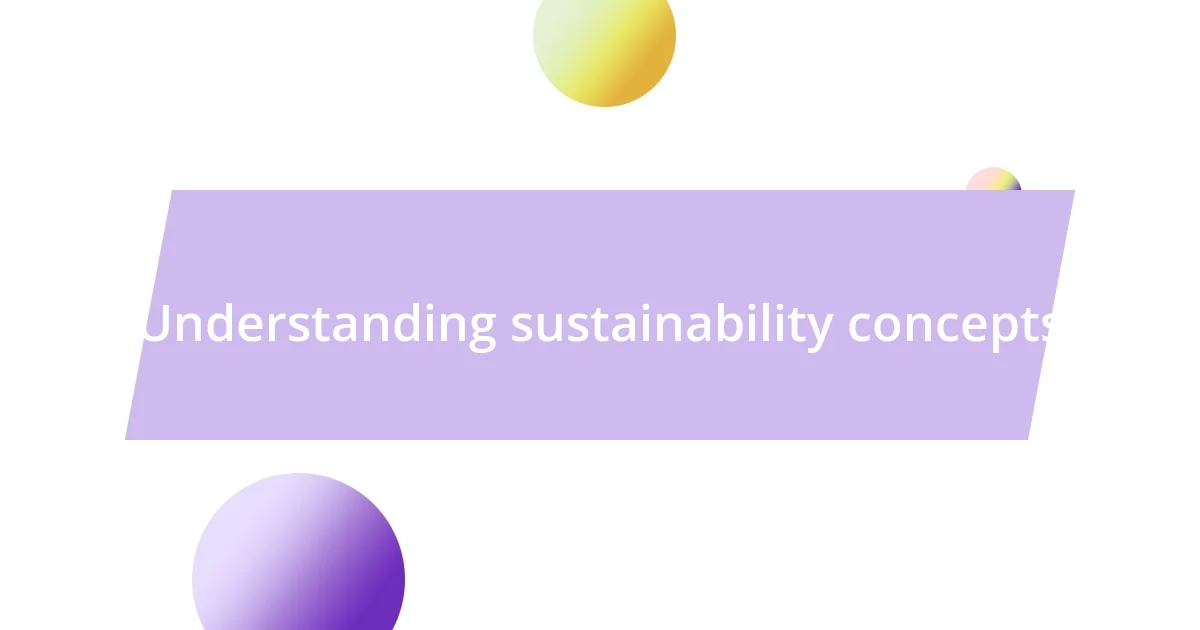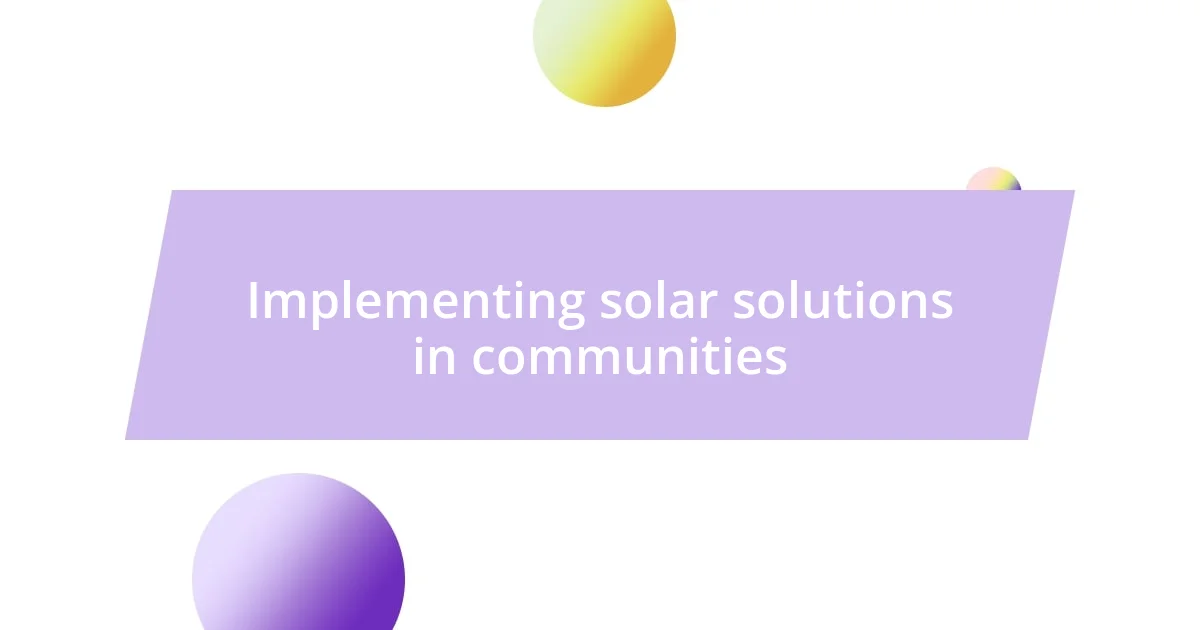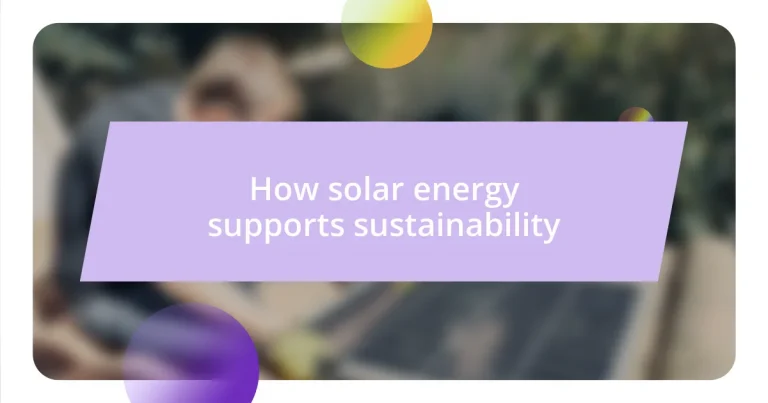Key takeaways:
- Solar energy offers a sustainable solution to power needs, reducing energy bills and carbon footprints.
- Sustainability encompasses environmental, economic, social, and cultural dimensions, highlighting the interconnectedness of personal choices and collective impact.
- Community solar projects foster local engagement, job creation, and social equity, benefiting underserved neighborhoods and promoting a cleaner environment.

Introduction to solar energy
Solar energy, harnessed from the sun’s rays, has transformed the way we think about power. I still remember the feeling of awe the first time I saw solar panels glistening in the sunlight; it struck me as a powerful symbol of how nature can provide for our needs. Isn’t it fascinating to consider that the sun emits enough energy in just one hour to power the entire planet for a year?
At its core, solar energy is not just about electricity—it’s about potential. When I talk to friends contemplating solar energy solutions for their homes, their excitement is palpable. They often ask, “Is it really worth the investment?” And I can confidently share my own experience of seeing my energy bills drop significantly after installation. This shift not only saves money but also nurtures a deeper connection to sustainable living.
Moreover, as we face pressing environmental challenges, turning to solar energy feels like a breath of fresh air. The more I delve into this topic, the more I realize how renewable resources can pave the way for a sustainable future. It’s inspiring to know we can reduce our carbon footprint while tapping into an inexhaustible energy source. What if we all made the switch? Imagine the collective impact we could achieve.

Understanding sustainability concepts
Sustainability is a broad concept that revolves around meeting our present needs without compromising future generations’ ability to meet theirs. When I first learned about this interconnectedness, it completely changed my perspective on consumption. I vividly remember a community workshop where individuals shared their stories of reducing waste and implementing eco-friendly practices. Their enthusiasm was contagious, and it truly highlighted how personal actions contribute to a larger movement toward sustainability.
To delve deeper into sustainability, here are some essential concepts:
– Environmental sustainability: Protecting natural ecosystems and reducing our ecological footprint.
– Economic sustainability: Supporting systems that foster economic growth while ensuring resource availability for future generations.
– Social sustainability: Promoting social equity and improving the quality of life for all communities.
– Cultural sustainability: Preserving cultural identities and practices while encouraging diversity and inclusivity.
Each of these elements illustrates how complex and intertwined sustainability is, reminding us that every choice we make plays a role in shaping a better world.

Implementing solar solutions in communities
Implementing solar solutions in communities can spark a meaningful transformation. I recall attending a local town hall meeting where residents rallied for a community solar project. Listening to their hopes for reduced energy costs and increased resilience against power outages was genuinely uplifting. Isn’t it incredible how collective ambition can light up an entire neighborhood?
When communities adopt solar energy, they often witness a surge in local involvement and job creation. I remember feeling a sense of pride when I saw local youth engaged in training programs focused on solar panel installation. It’s not just about renewable energy; it’s about building skills and fostering a sense of ownership among community members. Have you ever participated in something that brought people together for a common cause? It’s a powerful experience.
In addition to economic benefits, solar solutions frequently enhance social equity. I think back to a project where subsidized solar panels were installed in underserved neighborhoods. The joy on residents’ faces as they learned about reduced energy bills and the chance to contribute to a cleaner environment was profound. It’s a reminder that accessibility to renewable resources can elevate entire communities and bridge gaps—an inspiring step toward a more sustainable future for everyone.














